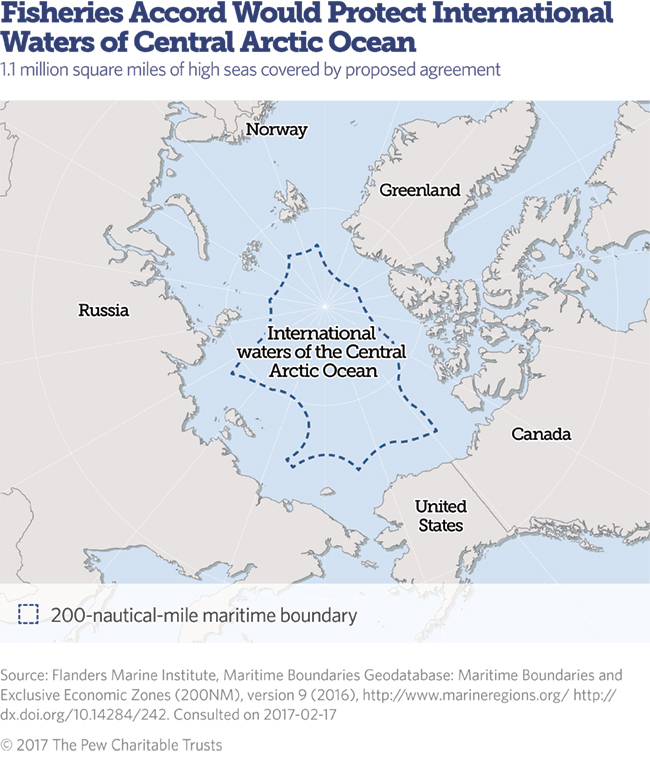Pew Applauds International Agreement to Protect Central Arctic Ocean Ecosystem
Historic pact bans unregulated commercial fishing until science-based measures are in force
WASHINGTON—The Pew Charitable Trusts today praised a new international agreement that prevents commercial fisheries from starting in the Central Arctic Ocean before adequate science is collected and appropriate regulatory mechanisms are in place. The signatories, which include the five Arctic coastal countries—the United States, Canada, Russia, Greenland/Denmark, and Norway—plus China, the European Union, Iceland, Japan, and South Korea, agreed to close the region to fishing for at least 16 years to better understand this ever changing ecosystem and its marine life and to determine if fishing there could be ecologically sustainable. After that initial term, the pact will extend automatically in five-year increments unless a country objects or science-based fishing limits and management measures are adopted.
Steve Ganey, who oversees Arctic marine projects for Pew, released the following statement:
“With foresight and caution, these 10 governments seized a historic opportunity to put protections in place before commercial fishing starts. Covering over a million square miles, the Central Arctic Ocean is now the largest marine area to be proactively placed off limits to fishing. There are currently no regulatory measures on the books for fisheries in this high seas area.
“The impact of warming waters on this fragile ecosystem is already twice the rate of the rest of the planet. As a result, it is essential to prevent fishing until scientists are able to determine fishing limits that would not harm the ecosystem.
“Scientists can use this time to better understand the changing region by conducting baseline assessments of ecosystem structure and fish populations. In addition, local and traditional knowledge need to be incorporated into any future decision-making. This research should inform development of appropriate measures to safeguard the ecosystem before fishing is allowed.
The Pew Charitable Trusts is driven by the power of knowledge to solve today’s most challenging problems. Learn more at www.pewtrusts.org.










